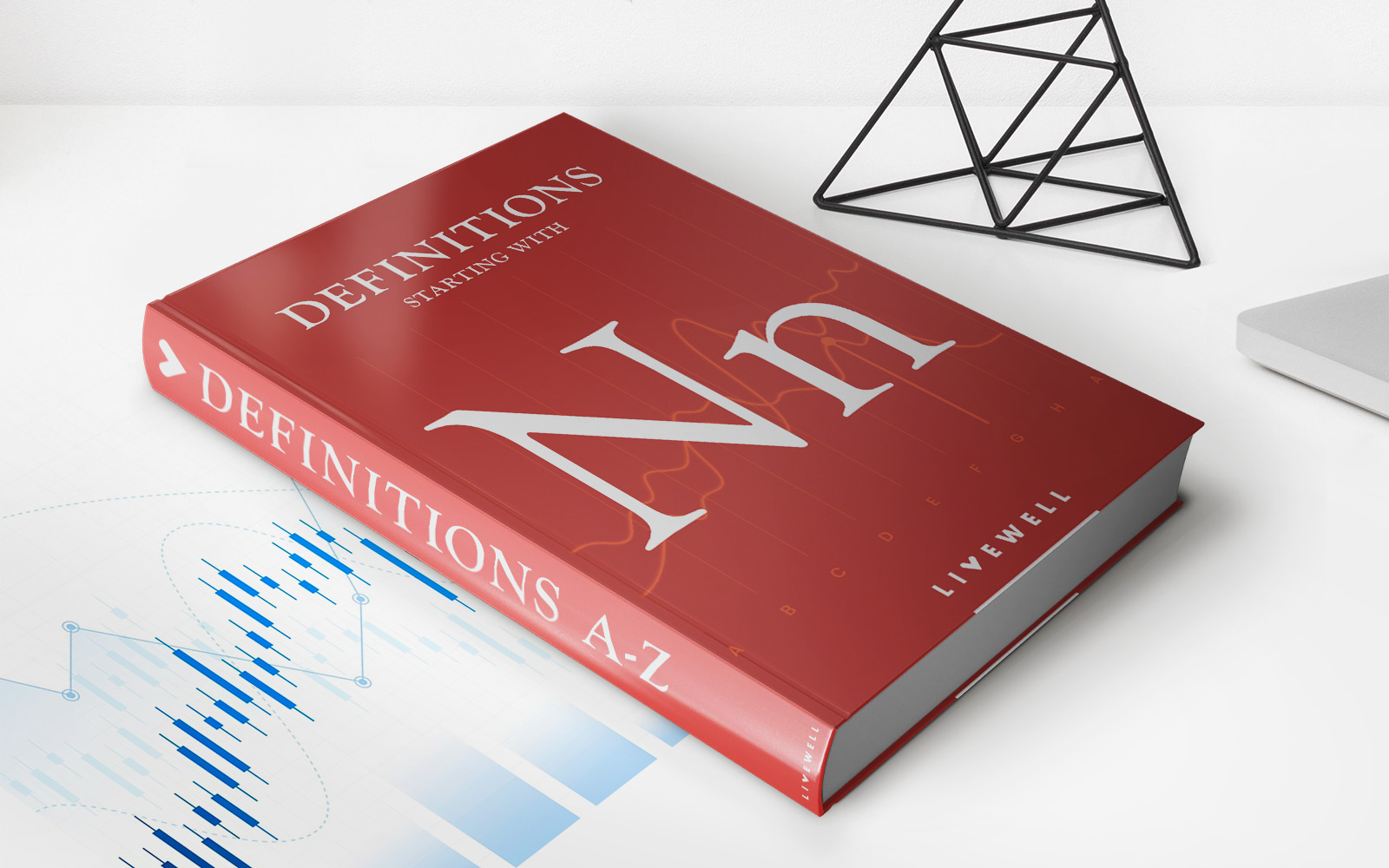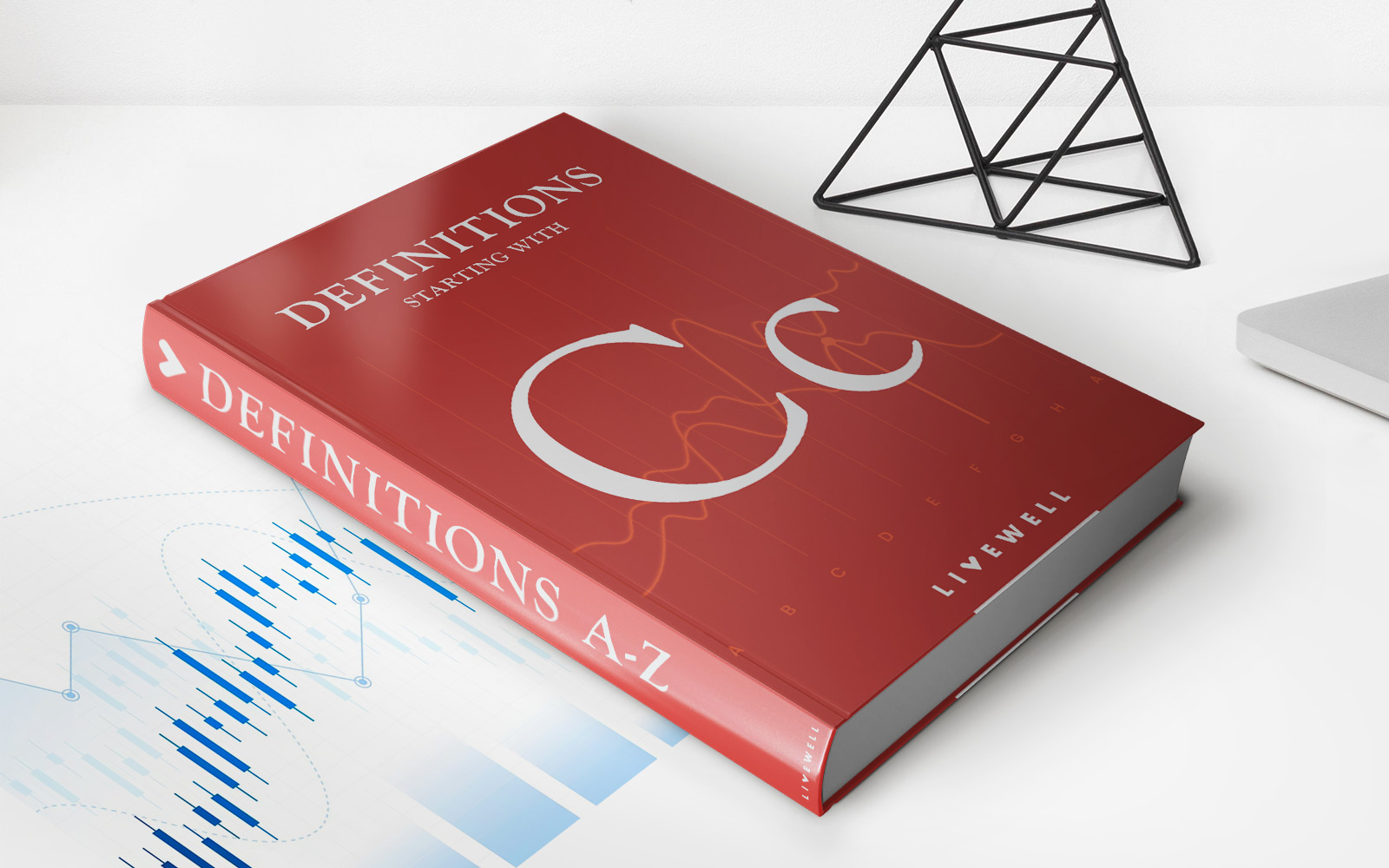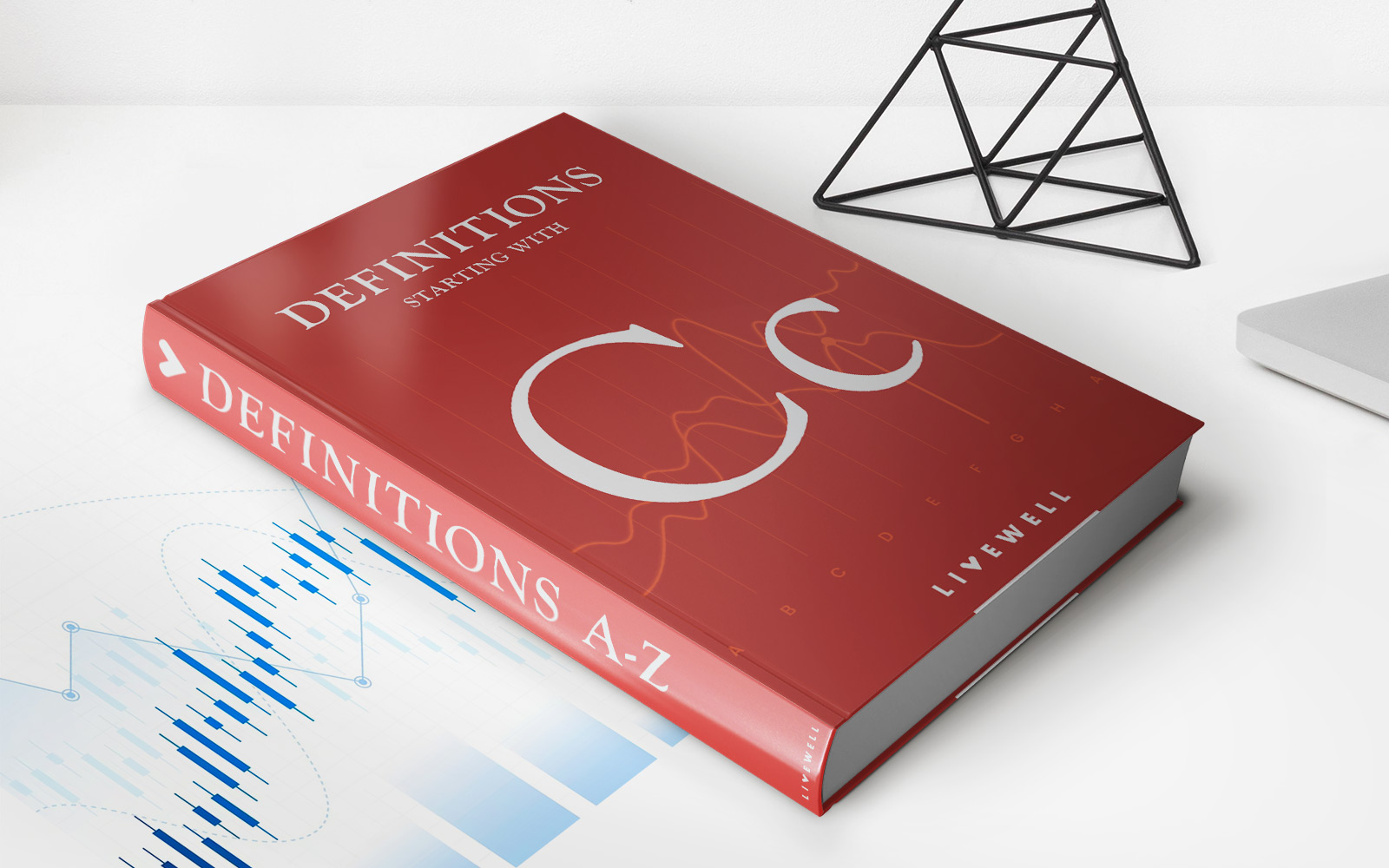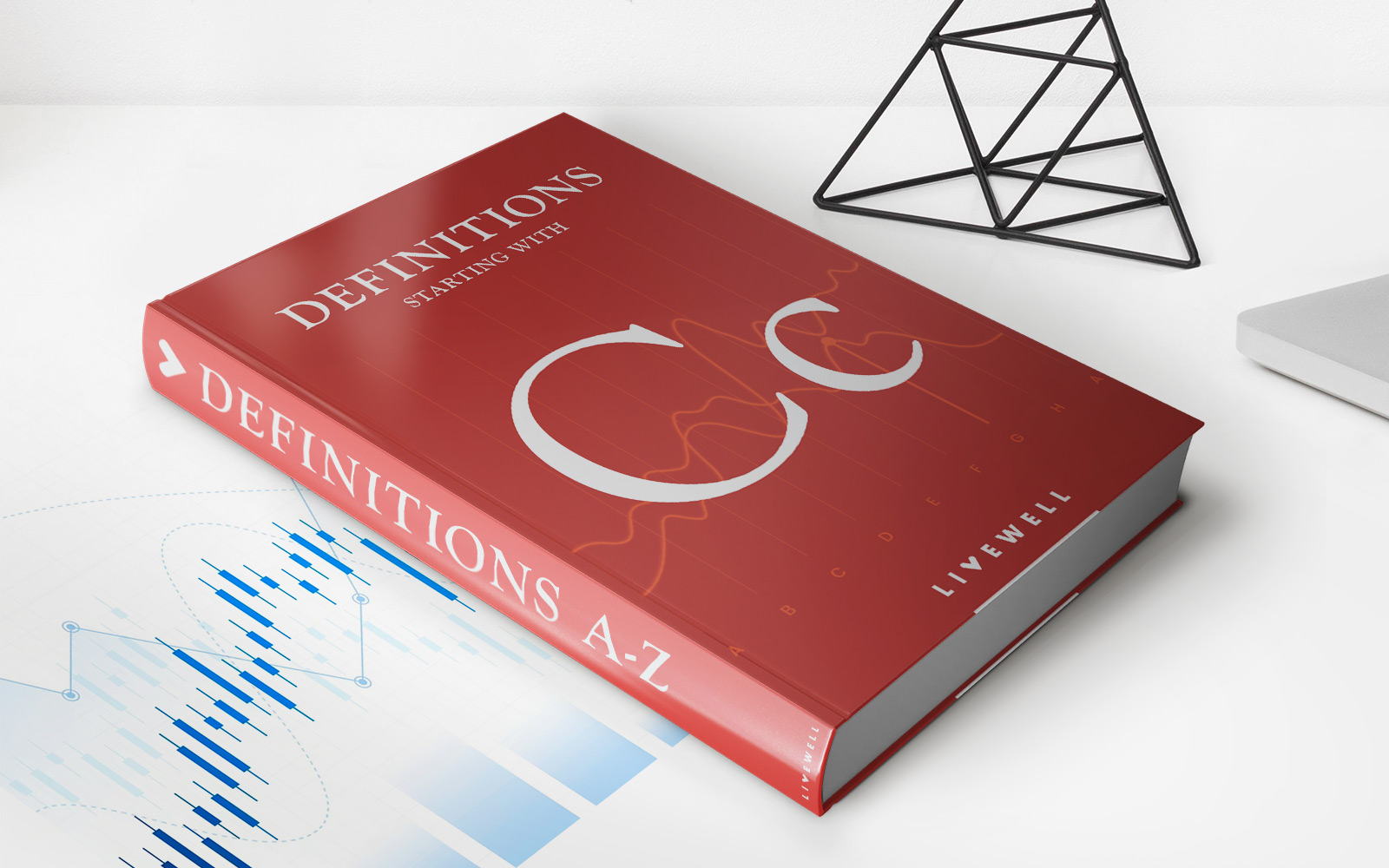Home>Finance>Where Are Negotiable Certificates Of Deposit Traded


Finance
Where Are Negotiable Certificates Of Deposit Traded
Modified: December 29, 2023
Find out where negotiable certificates of deposit are traded in the finance industry. Explore various platforms for buying and selling these valuable financial instruments.
(Many of the links in this article redirect to a specific reviewed product. Your purchase of these products through affiliate links helps to generate commission for LiveWell, at no extra cost. Learn more)
Table of Contents
- Introduction
- Definition of Negotiable Certificates of Deposit (NCD)
- Primary Market for Negotiable Certificates of Deposit
- Secondary Market for Negotiable Certificates of Deposit
- Exchanges and Trading Platforms for Negotiable Certificates of Deposit
- Major Participants in the Trading of Negotiable Certificates of Deposit
- Factors Influencing the Trading of Negotiable Certificates of Deposit
- Conclusion
Introduction
In the world of finance, Negotiable Certificates of Deposit (NCD) play a significant role as a financial instrument for investors and institutions to raise funds. NCDs are short-term debt instruments issued by banks and financial institutions, offering investors the opportunity to earn interest over a specified period. These instruments are highly liquid and provide a safe investment option for individuals looking to grow their wealth.
When it comes to trading NCDs, there are primary and secondary markets where these instruments are bought and sold. While the primary market involves the issuance of new NCDs directly from the issuer to the investor, the secondary market provides a platform for the trading of already issued NCDs between investors.
In this article, we will explore the various trading platforms and exchanges where negotiable certificates of deposit are traded. We will delve into the primary and secondary markets, understand the major participants in NCD trading, and discuss the factors that influence the trading of these instruments.
Whether you are an investor looking to diversify your portfolio or a financial institution seeking to raise funds, understanding where NCDs are traded can provide valuable insights into the dynamics of these markets and help you make informed decisions.
Definition of Negotiable Certificates of Deposit (NCD)
Negotiable Certificates of Deposit (NCDs) are financial instruments issued by banks and financial institutions to raise short-term funds. They are essentially a type of fixed-term deposit with a fixed interest rate and maturity date. NCDs are considered negotiable because they can be bought and sold in the secondary market before their maturity date.
NCDs are typically issued in large denominations, making them attractive to institutional investors and high net worth individuals. These instruments offer a higher interest rate compared to regular savings accounts or traditional fixed deposits, making them an appealing investment option for those seeking higher returns in a relatively short period.
One key feature of NCDs is their negotiability, which allows investors to trade them in the secondary market. This means that if an investor needs liquidity before the maturity date of their NCD, they can sell it to another investor who is willing to buy. The trading of NCDs in the secondary market provides investors with flexibility and liquidity, making them a versatile investment tool.
The terms and conditions of NCDs, including the interest rate and maturity date, are specified at the time of issuance. The interest earned on NCDs is typically paid at the end of the investment period, offering investors a regular income stream. The maturity period of NCDs can range from a few weeks to several years, providing investors with various options to match their investment goals and time horizons.
Furthermore, NCDs are considered relatively low-risk investment instruments, as they are typically issued by reputable financial institutions with strong credit ratings. The risk associated with NCDs mainly stems from the creditworthiness of the issuer. Investors should carefully assess the creditworthiness of the issuing bank or financial institution before investing in NCDs.
Overall, Negotiable Certificates of Deposit (NCDs) are a popular investment choice due to their attractive returns, negotiability, and relatively low risk. Understanding the basics of NCDs is crucial for both institutional investors and individuals looking to diversify their investment portfolio.
Primary Market for Negotiable Certificates of Deposit
The primary market for Negotiable Certificates of Deposit (NCDs) is where these instruments are issued and sold by banks and financial institutions directly to investors. In the primary market, new NCDs are created and offered to investors for purchase.
When a bank or financial institution decides to raise funds through the issuance of NCDs, they determine the terms and conditions of the offering, including the interest rate, maturity date, and the minimum investment amount. These details are outlined in a prospectus or offering memorandum, which provides potential investors with key information about the NCDs.
Investors interested in purchasing NCDs in the primary market can participate by submitting their applications to the issuing bank or financial institution. The bank then evaluates the applications and allocates the NCDs based on the investors’ preferences and the availability of the instruments.
Typically, the primary market for NCDs is accessible to both individual investors and institutional investors, but the minimum investment amounts may vary. Some issuers may have a minimum investment requirement, making NCDs more accessible to institutional investors or high net worth individuals, while others may allow smaller investments from individual investors.
The primary market for NCDs provides an opportunity for investors to purchase newly issued NCDs directly from the issuer. By participating in the primary market, investors can take advantage of potentially higher interest rates offered by newly issued NCDs compared to those available in the secondary market.
Additionally, investing in NCDs in the primary market allows investors to align their investment goals and time horizons with the specific terms and conditions of the newly issued NCDs. Investors have the flexibility to choose NCDs that suit their risk appetite and investment preferences.
Overall, the primary market for NCDs serves as a platform for issuing institutions to raise funds and offers investors the opportunity to purchase new NCDs at attractive interest rates and terms. It is an important component of the overall NCD market, providing a mechanism for the initial creation and distribution of these financial instruments.
Secondary Market for Negotiable Certificates of Deposit
In addition to the primary market, Negotiable Certificates of Deposit (NCDs) also have a secondary market, where previously issued NCDs can be bought and sold among investors. The secondary market provides liquidity and flexibility for investors who wish to trade their NCDs before their maturity date.
Unlike the primary market, where NCDs are issued and sold by banks and financial institutions, the secondary market is a platform for investors to trade NCDs among themselves. When an investor wants to sell their NCD before its maturity, they can put it up for sale on the secondary market. Similarly, if an investor is looking to invest in NCDs, they can browse the secondary market to find NCDs available for purchase.
The secondary market for NCDs offers several advantages to investors. Firstly, it provides liquidity, allowing investors to convert their NCDs into cash before the maturity date. This liquidity is especially valuable if an investor needs immediate access to funds or if their investment goals change.
Secondly, the secondary market allows investors to take advantage of market fluctuations and changes in interest rates. If interest rates have increased since the issuance of their NCD, investors can sell their NCDs at a premium in the secondary market. Conversely, if interest rates have fallen, investors can purchase NCDs at a discount, potentially earning higher returns.
Similar to other financial markets, the secondary market for NCDs operates through various trading platforms and exchanges. These platforms connect buyers and sellers of NCDs and facilitate the smooth transfer of ownership. Some of the well-known exchanges for NCD trading include the Over-The-Counter Bulletin Board (OTCBB) and the Bond Market Association (BMA).
It is important to note that the price of NCDs in the secondary market can fluctuate based on several factors, including changes in interest rates, market demand and supply, and the creditworthiness of the issuer. Investors should carefully evaluate these factors and consider the prevailing market conditions before engaging in NCD trading in the secondary market.
Overall, the secondary market for NCDs provides investors with the flexibility to buy and sell previously issued NCDs, offering liquidity and opportunities to capitalize on market conditions. It complements the primary market by creating a robust and dynamic NCD market that benefits both investors and issuers.
Exchanges and Trading Platforms for Negotiable Certificates of Deposit
When it comes to trading Negotiable Certificates of Deposit (NCDs), there are several exchanges and trading platforms that facilitate the buying and selling of these financial instruments. These platforms provide a centralized location where investors can connect and engage in NCD trading.
One of the well-known exchanges for NCD trading is the Over-The-Counter Bulletin Board (OTCBB). The OTCBB is an electronic trading platform that allows investors to trade NCDs and other types of securities directly with each other. It provides a transparent marketplace where buyers and sellers can negotiate and execute trades.
Another notable trading platform for NCDs is the Bond Market Association (BMA). The BMA is a trade association that represents participants in the fixed-income market, including dealers, banks, and institutional investors. It provides a platform where members can access information and engage in trading activities, including NCDs.
In addition to these specific exchanges and platforms, NCDs may also be traded on larger financial exchanges, such as the New York Stock Exchange (NYSE) or the London Stock Exchange (LSE). These exchanges offer a wide range of financial instruments, including NCDs, and provide investors with a centralized marketplace for buying and selling securities.
Furthermore, many banks and financial institutions have their own trading platforms or portals where investors can access and trade NCDs. These platforms are often tailored to the institution’s specific offerings and may provide additional features, such as research and analytics tools to assist investors in making informed trading decisions.
When trading NCDs on these exchanges and platforms, investors can place buy or sell orders based on their desired price and quantity. The trades are typically executed electronically, ensuring fast and efficient transaction processing. Investors can also monitor the real-time prices and participate in live bidding sessions, enhancing the transparency and competitiveness of the trading process.
It is crucial for investors to familiarize themselves with the specific rules and regulations of the exchanges and platforms they choose to trade NCDs on. Each platform may have its own listing requirements, trading hours, and settlement procedures that investors should be aware of to ensure a smooth and compliant trading experience.
Overall, the availability of various exchanges and trading platforms provides investors with options to participate in NCD trading. Whether through specialized platforms like the OTCBB and BMA or broader financial exchanges, these platforms facilitate the efficient and transparent trading of NCDs, enhancing market liquidity and accessibility for investors.
Major Participants in the Trading of Negotiable Certificates of Deposit
The trading of Negotiable Certificates of Deposit (NCDs) involves several key participants, each playing a unique role in the overall market dynamics. Understanding the major participants in NCD trading can provide valuable insights into the ecosystem and the factors that influence the pricing and liquidity of these instruments.
1. Banks and Financial Institutions: Banks and financial institutions are the primary issuers of NCDs. They issue these instruments as a means of raising short-term funds. Banks with strong credit ratings are typically preferred by investors, as they offer greater security and confidence in the repayment of principal and interest upon maturity.
2. Institutional Investors: Institutional investors, such as mutual funds, pension funds, and insurance companies, play a significant role in NCD trading. They have the financial capacity to engage in large-scale trading activities and can accumulate substantial holdings of NCDs. Institutional investors often seek NCDs as a way to diversify their investment portfolios and generate fixed income returns.
3. Individual Investors: Individual investors, including retail investors and high net worth individuals, also participate in NCD trading. These investors may be attracted to the higher interest rates offered by NCDs compared to regular savings accounts or traditional fixed deposits. NCDs provide an avenue for individual investors to earn stable returns while maintaining relatively low levels of risk.
4. Brokers and Dealers: Brokers and dealers act as intermediaries in the trading process. They connect buyers and sellers of NCDs, facilitating transactions and providing liquidity to the market. Brokers and dealers may also offer research and advisory services to investors, assisting them in making informed trading decisions.
5. Trading Platforms and Exchanges: Various trading platforms and exchanges, such as the Over-The-Counter Bulletin Board (OTCBB) and the Bond Market Association (BMA), provide a centralized marketplace for NCD trading. These platforms enable investors to access real-time price information, place buy or sell orders, and execute trades efficiently.
6. Rating Agencies: Rating agencies play a crucial role in providing independent assessments of the creditworthiness of NCD issuers. Investors rely on the ratings assigned by agencies like Moody’s, Standard & Poor’s, and Fitch to assess the credit risk associated with different NCD offerings. The ratings influence the demand and pricing of NCDs in the market.
7. Regulatory Authorities: Regulatory authorities, such as the Securities and Exchange Commission (SEC) in the United States, oversee and regulate the trading of NCDs to ensure fair and transparent markets. They establish rules and regulations that govern the issuance, trading, and reporting of NCDs, protecting the interests of investors and fostering market integrity.
By understanding the roles and motivations of these major participants, investors can better navigate the NCD market and make informed decisions based on factors such as issuer reputation, credit ratings, market demand, and regulatory compliance.
Factors Influencing the Trading of Negotiable Certificates of Deposit
The trading of Negotiable Certificates of Deposit (NCDs) is influenced by various factors that impact their pricing, liquidity, and overall market dynamics. Understanding these factors is crucial for investors looking to actively participate in the NCD market and make informed trading decisions.
1. Interest Rates: Interest rates play a significant role in NCD trading. Investors closely monitor changes in interest rates, as they directly impact the attractiveness of NCDs compared to other investment options. When interest rates rise, existing NCDs may become less attractive in the secondary market, potentially leading to a decrease in their price. Conversely, when interest rates fall, NCDs may become more desirable, potentially increasing their market value.
2. Credit Ratings: The creditworthiness of the NCD issuer is a crucial factor influencing both the initial issuance and subsequent trading of NCDs. Issuers with higher credit ratings are generally viewed as less risky and attract more demand from investors. Higher-rated NCDs tend to command higher prices and lower yields in the secondary market, while lower-rated NCDs may face challenges in finding buyers.
3. Issuer Reputation: The reputation and track record of the NCD issuer also influence investor sentiment and demand for their securities. Banks and financial institutions with a strong history of financial stability and credibility are more likely to attract investors. A solid reputation can enhance the liquidity and trading activity of NCDs issued by that institution.
4. Market Conditions: The overall market conditions, including economic indicators, geopolitical events, and market sentiment, can influence the trading of NCDs. Uncertain or volatile economic conditions may lead to increased demand for the perceived safety of NCDs, driving up their prices. Conversely, positive economic indicators or improved market sentiment may result in decreased demand for NCDs as investors seek higher-risk investments with potentially higher returns.
5. Liquidity: The liquidity of NCDs, both in the primary and secondary markets, is a critical factor for investors. NCDs issued by well-known banks or financial institutions with high trading volumes tend to be more liquid, making them easier to buy and sell. High liquidity reduces transaction costs and allows investors to enter or exit positions as needed, enhancing the overall trading experience.
6. Investor Risk Appetite: Investor risk appetite also plays a role in NCD trading. During periods of heightened uncertainty or market volatility, investors may prefer the stability and security offered by NCDs, leading to increased demand and trading activity. Conversely, when investor risk appetite is high, they may seek higher-risk assets with greater potential returns, decreasing the demand for NCDs.
7. Regulatory Environment: Regulatory factors, including changes in regulations or reporting requirements, can impact NCD trading. Investors should stay informed about any regulatory developments that may affect the trading and issuance of NCDs, as compliance with regulations is essential for maintaining market integrity and investor confidence.
By considering these influencing factors, investors can gain insights into the market dynamics and make well-informed decisions when it comes to trading Negotiable Certificates of Deposit.
Conclusion
Negotiable Certificates of Deposit (NCDs) are important financial instruments that allow banks and financial institutions to raise short-term funds while providing investors with an attractive investment option. Understanding the various aspects of NCD trading is vital for both investors and issuers to navigate the market successfully.
In this article, we explored the primary and secondary markets for NCDs, as well as the exchanges and trading platforms where these instruments are bought and sold. We discussed the major participants in NCD trading, including banks, institutional and individual investors, brokers and dealers, and rating agencies. Moreover, we examined the factors that influence NCD trading, such as interest rates, credit ratings, market conditions, liquidity, investor risk appetite, and regulatory environment.
By being aware of these factors, investors can make informed decisions based on their investment goals, risk tolerance, and market outlook. They can monitor interest rate movements, assess issuer creditworthiness, evaluate market conditions, and navigate the secondary market to take advantage of opportunities for potentially higher returns or liquidity.
Furthermore, understanding the role of different market participants helps investors assess the market dynamics and make informed trading decisions. They can weigh the reputation and creditworthiness of issuers, analyze market sentiment, and consider the liquidity of NCDs before entering the market.
In conclusion, Negotiable Certificates of Deposit offer investors the opportunity to earn attractive returns with relatively low risk. The primary and secondary markets, along with various exchanges and trading platforms, enable investors to participate in buying and selling NCDs based on their trading objectives and market preferences. It is essential for investors to stay informed, conduct thorough research, and closely monitor market developments to make well-informed decisions in the NCD market.
By staying abreast of market trends, understanding the factors affecting NCD trading, and making informed investment choices, investors can effectively utilize NCDs as part of their overall investment strategy and achieve their financial goals.














